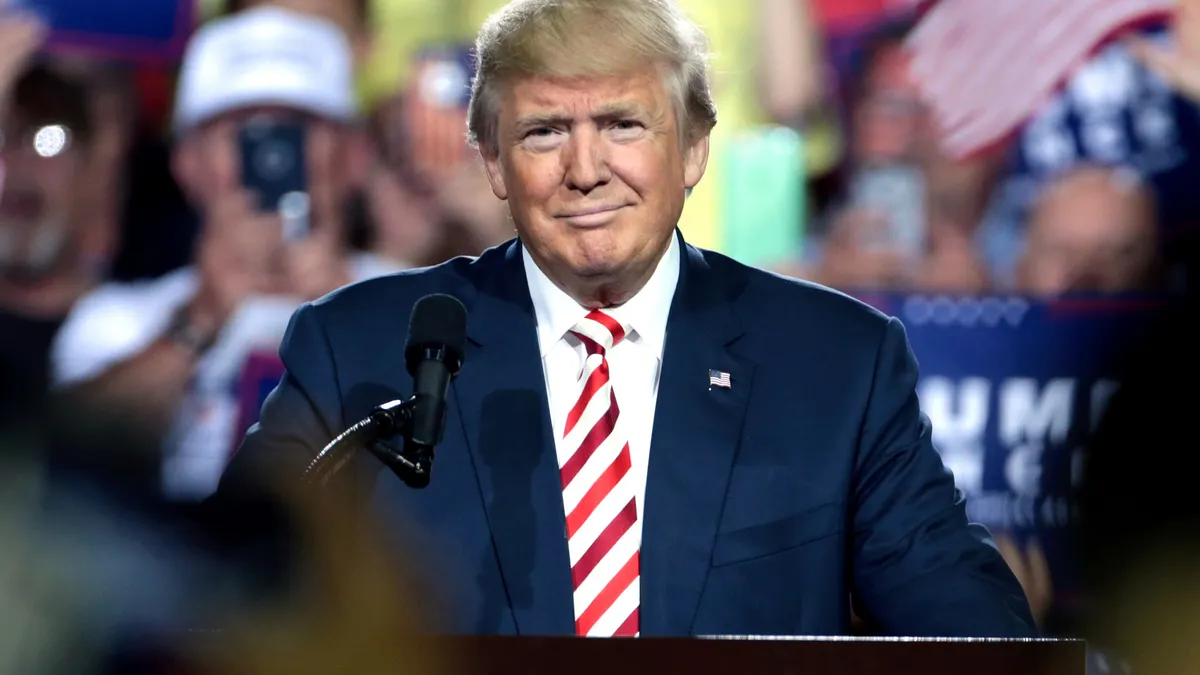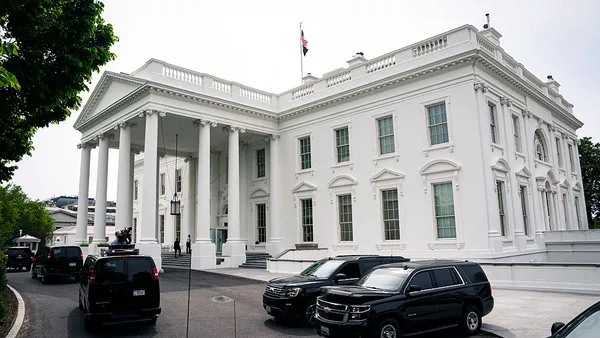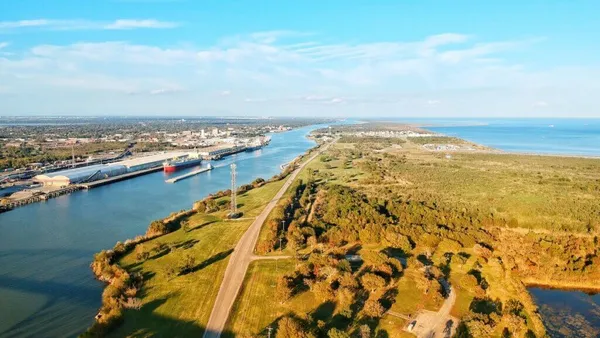Dive Brief:
- As part of its full 2018 budget proposal, the Trump administration has revealed a few long-awaited details of its $1 trillion infrastructure plan, according to The Hill.
- The budget calls for $200 billion in direct federal spending over 10 years — a move that the administration said would spur $1 trillion of investments — as well as lifting the cap on private activity bonds, allowing states to increase tolling, cutting regulations and streamlining environmental review processes.
- The budget request also calls for a 13% funding reduction for Department of Transportation programs and would either cut or shrink the Federal Transit Administration's Capital Investment program, spending on long-distance Amtrak service, a Federal Aviation Administration program benefiting small airports and Transportation Investment Generating Economic Recovery (TIGER) grants.
Dive Insight:
Many program cuts and initiatives in this request were also part of the administration's "skinny" budget proposal introduced in March.
In response to President Donald Trump's latest proposal, Stephen Sandherr, CEO of the Associated General Contractors of America, said in a statement that the association viewed the recommendations as more of a policy statement and starting point toward negotiating a hard budget. Sandherr added that the AGC would work with lawmakers in trying to establish optimal levels of public and private investment.
Like its March predecessor, the administration has also left a gap where many expected a $4 billion border wall funding request to be, according to The Dallas Morning News. While maintaining that it is still committed to building a U.S.–Mexico border wall, the administration requested only $1.6 billion in this budget. That is also a significant reduction from the March request of $2.6 billion.
Current border wall estimates are $22 billion, according to a Department of Homeland Security report, and Trump has repeatedly said that Mexico will pay for the entire project, but there is not reference to that in this proposal.
What is no surprise in Trump's budget request is how much the $1 trillion plan relies on various private sector initiatives like private activity bonds. In November, William Eliopoulos, a partner with Rutan & Tucker in California, told Construction Dive that this funding mechanism permits the private sector to borrow money for infrastructure projects at the same rate as public entities and can provide significant tax benefits.
However, questions remain regarding non-revenue-generating projects that are still in need of repair, as well as the exact framework for the private sector's involvement in infrastructure projects.














